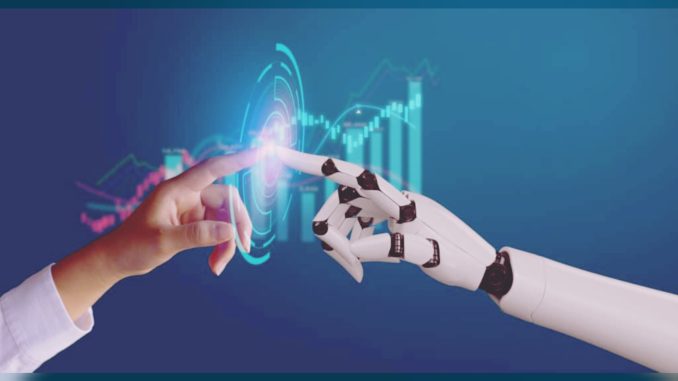
Artificial Intelligence (AI) has rapidly become one of the most transformative technologies of the 21st century. From enhancing business operations to revolutionizing healthcare and improving customer experiences, AI’s applications span across almost every industry. As we move forward, the integration of AI into our daily lives will only deepen, fundamentally altering how we interact with technology. In this article, we’ll explore the future of AI and how it’s shaping the tech landscape of tomorrow.
1. **AI-Powered Automation: Boosting Efficiency and Reducing Costs**
Automation is one of the most visible effects of AI across industries. From robotic process automation (RPA) in corporate environments to AI-driven customer service chatbots, businesses are adopting AI to streamline operations and reduce overhead costs. In the future, AI-powered tools will become even more advanced, automating complex tasks and allowing human workers to focus on higher-value activities.
**Key Sectors:**
– **Manufacturing:** AI-driven robots and automated systems are expected to enhance production lines, boosting efficiency and reducing human error.
– **Customer Service:** Natural language processing (NLP) and machine learning algorithms will enable more sophisticated AI assistants that can handle nuanced conversations and provide personalized customer experiences.
2. **AI in Healthcare: From Diagnostics to Personalized Medicine**
One of AI’s most promising applications lies in healthcare. From diagnosing diseases earlier and more accurately to tailoring personalized treatments, AI has the potential to save lives and cut healthcare costs drastically.
**AI in Action:**
– **Diagnostics:** AI algorithms are already outperforming doctors in diagnosing certain medical conditions, such as identifying cancerous tumors on radiology scans.
– **Personalized Medicine:** Machine learning is enabling the development of personalized treatment plans based on a patient’s unique genetic makeup, lifestyle, and medical history.
As AI systems become more accurate, they will revolutionize healthcare, enabling preventive medicine and more effective treatments.
3. **AI and the Workforce: Friend or Foe?**
While AI is often viewed as a threat to jobs, it also presents opportunities for job creation and workforce transformation. As AI automates routine tasks, the demand for skilled workers who can develop, manage, and improve AI systems will increase.
**Future Roles:**
– **AI Specialists:** From AI engineers to data scientists, the tech sector will see increased demand for roles centered around AI development and implementation.
– **Human-AI Collaboration:** Workers in various fields will increasingly collaborate with AI systems to enhance productivity and achieve better outcomes.
4. **AI and Ethics: Navigating the Risks**
As AI becomes more prevalent, ethical considerations are becoming more urgent. Issues such as data privacy, algorithmic bias, and job displacement are pressing concerns that need to be addressed to ensure AI’s benefits are widespread and equitable.
**Key Concerns:**
– **Bias in AI:** Without careful oversight, AI systems can reinforce and even exacerbate societal biases.
– **Privacy and Surveillance:** AI’s ability to process vast amounts of data raises concerns about privacy, particularly in areas like facial recognition and government surveillance.
Governments and tech companies will need to work together to establish regulations and guidelines that promote ethical AI development and deployment.
5. **AI in Everyday Life: The Rise of Smart Technologies**
AI is not only transforming businesses but also personal lives. From virtual assistants like Alexa and Google Home to AI-powered home automation systems, AI is already becoming a staple in everyday technology. In the near future, AI will evolve further, making our homes, cars, and even cities smarter.
**Innovations to Watch:**
– **Smart Homes:** AI will enable homes that learn your habits, adjusting lighting, temperature, and entertainment to your preferences.
– **Self-Driving Cars:** Autonomous vehicles will become increasingly common, reducing traffic accidents and transforming transportation.